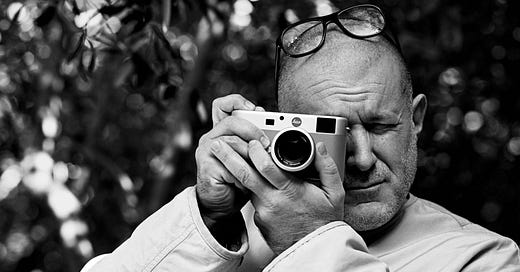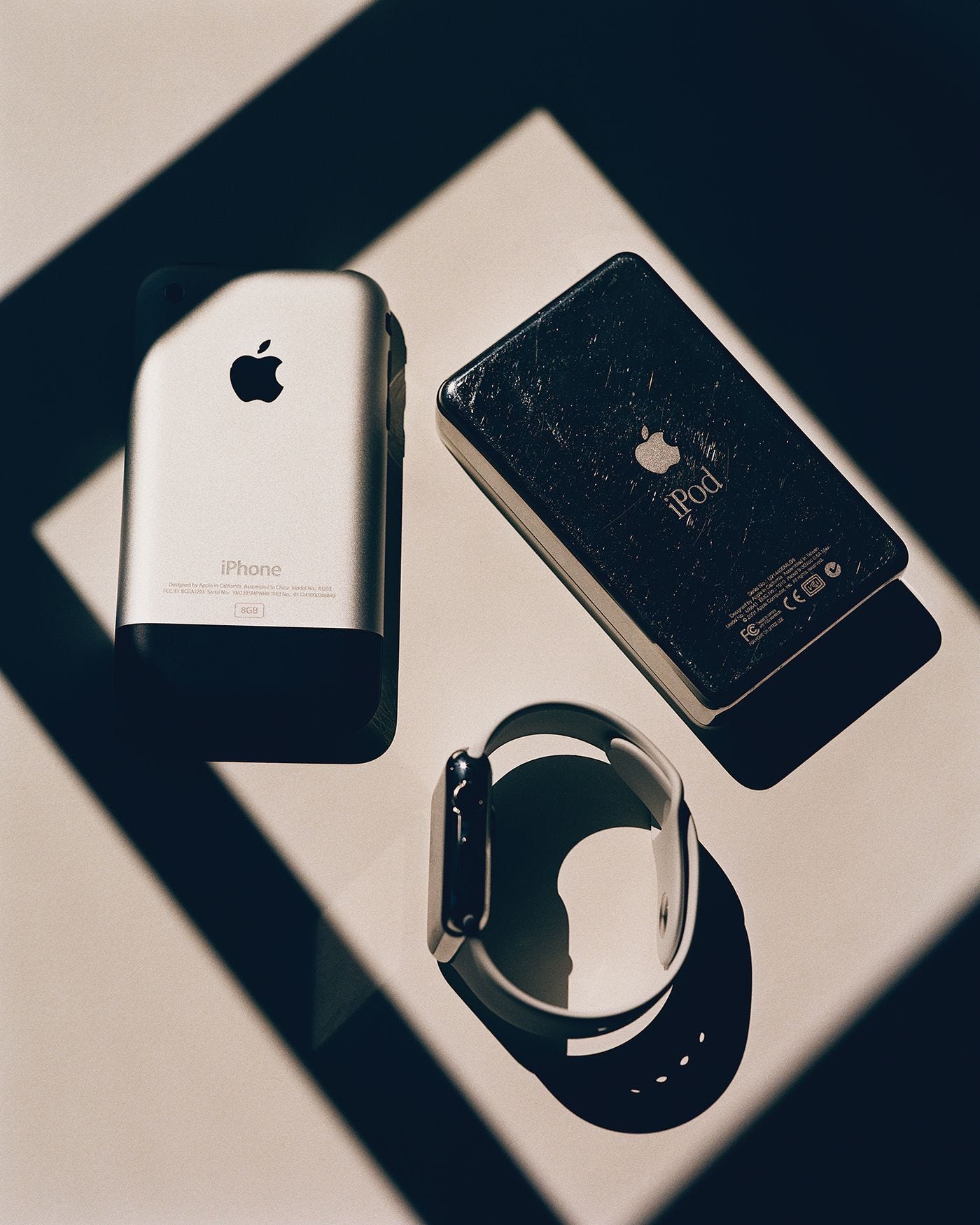Retail Romanticism Revivalism
A decade into disruption and data-driven decision making, now what?
When I feel a need to explain myself, professionally and even personally, I find myself saying, “I grew up around retail” as though ‘retail’ has been a sort of inescapable force in my life. Maybe this is how I actually feel sometimes. Throughout my childhood, I watched my mother climb the corporate ladder at one of the iconic mall brands that was as much of a cultural touchpoint as it was a store. I mention this here only to provide some context.
I’m a little over a decade into my own career and the only work I’ve ever known has somehow been tied to ‘retail’. In recent years - especially since 2020 - I’ve grown increasingly apathetic, because really: of all the things the world could use now, ‘more stuff’ feels like it belongs at the bottom of the list.
Despite this: Why is it that so many people today think they should have a brand? Or, further, why do so many people feel as though they themselves are deserving of being a brand and then look for something to sell to promote themselves rather than having any sort of intrinsic desire to create anything?
Retail is a broad term in the sense that it pertains to everything from local ‘mom and pop’ shops to global mega-brands with thousands of doors and advanced e-commerce operations. And yet, the entire span of the industry has fundamentally changed in the past ten or so years.
Ever since Warby Parker introduced the world to its ‘disruptive direct-to-consumer’ model, it’s hard to find any category or hero item that hasn’t received the Warby treatment. Still - it wasn’t just the model that changed, the people changed too.
Merchants have played a role in societies since ancient times, and in so many ways, acted as de facto ambassadors across continents and cultures. The ‘merchant class’ represented some of the earliest members of the middle class; people with little or no inherited wealth who managed to cultivate status through their adventurous personas, access to goods, and knowledge of people’s tastes and customs across continents.
Funny enough, between ancient times and the birth of e-commerce, a lot about retail stayed much the same. While retail was always ‘business’, it was also a bit of a game where the players prided themselves on their taste level, on knowing where to have things made or sourced from, and on sensing what customers will want this year, but also in the coming years too. As late as 2007, people would make a pilgrimage to the Paris boutique, Colette, just to buy their latest CD mix because it was cultural currency.
For a long time, retail was one of the few respected industries where one could make do without any sort of advanced degree or really any certification at all. Simply put: you had it or you didn’t, and because of this, retail was full of colorful types: generational shopkeepers, ‘garmentos’, importers, immigrants. It often became the home for creative, curious, or ambitious types who may not have thrived in school or didn’t find a calling in a more traditional profession.
As a young person, I met a lot of these types. Because it was so often a bit of a misfit bunch, the industry cultivated an atmosphere with no shortage of humor or acceptance for people who weren’t ‘just like you’. Beyond that, for those who were curious or clever enough, there seemed to be no limit to what one could achieve in this business, and I think I always found that a little intoxicating.
But this isn’t really the persona of someone who works in retail anymore. Part of what made the Warby story so groundbreaking was that the founders were Wharton MBAs. All at once, a whole lot of MBA candidates began asking themselves if ‘starting a brand’ sounded cooler than working on Wall Street, and it would seem that a lot of them concluded: yes.
Suddenly retail became a race to define one’s ‘value props’, raise gobs of money, and collect and manipulate data. I’ve watched ‘data’ take on an increasingly influential role in how decisions are made, to the point that any decision made that isn’t informed by data is dubbed irresponsible. And while there’s logic to this line of thought, when every brand is overly dependent on gathered data to drive decision-making, the result is increasingly ‘optimized’ websites, stores, and product that all look the same.
Philosophically: Can innovation ever take place in an echo chamber?
As recently as a few years ago, I’d find myself in meetings feeling ‘cool’ if I thought of a way a business might be able to utilize data to alter a customer’s experience. It isn’t that I no longer see value in this line of thinking - there is a lot we can infer from data. It becomes a lot less sexy, though, when it feels less like psychology and more like manipulation and exploitation of customer habits. We dub the use of data as ‘smart’, but should be asking ourselves when it’s actually lazy.
As an aside - this scene from Succession kills me because it’s so spot on:
Recently, through conversations, it would seem that a lot of us have grown disillusioned with brands and businesses whose products and stores are underwhelming, when the ‘instagrammable moment’ is too easily identifiable in the store or restaurant, etc. Much has been written about the current desire for authenticity to the point that ‘authenticity’ now feels like a buzzword too, but on top of that, I’ve begun to wonder if we need to restore value to the idea of a distinct ‘point of view’, that ‘the audience’ can’t tell us everything, and that we need leadership, in both small and big ways.
It feels relatively safe to assume that technology is now a part of everything, that data will continue to collect and inform customer behavior, that MBAs will successfully (and unsuccessfully) build brands, and that VCs will continue to look for the next big retail concept to throw money at. But — now might be a good time to be open to the idea that sometimes intuition beats over-thinking, that visionaries often arrive on less linear paths, and that creating things that feel exciting, or even groundbreaking, will require placing some bets on ideas that data doesn’t know anything about yet.
Thanks so much for reading after this long hiatus,
A
Other links:
Also - really enjoyed reading this WSJ article on Jony Ive. The apple green iMac was my first ever personal computer and I loved that thing. I remember the first time I saw the ‘Jerk it Out’ iPod commercial and was promised the idea of 1,000 songs in my pocket at a time when the no-skip Sony Discman Sport already felt like a revelation.
Now that we’re able to ‘look back’ on some of these legendary products, it’s even more apparent that the visible and tactile design was iconic, that it was about so much more than the technology they housed. One starts to look around at the products we’re currently using and ask if any of them have any type of soul or staying power.
Lastly, I’ve been making my way through The Dawn of Everything by David Graeber and David Wengrow. Like a lot of people, I read Sapiens a few years ago and at the time, felt like I got a lot out of it, but I’ve found Graeber and Wengrow’s book to contain a level of depth and thought-provocation that Sapiens never touched. It sort of reminds me of the first time I read Howard Zinn’s A People's History of the United States, comparing it to all of my American History textbooks. Anyway - this book is great… just a big one to carry around. But maybe you have a kindle.








The people need and require more. Thanks in advance ;)
Excellent analysis Amanda! I couldn't agree more that we lose significant opportunities for innovation or simply interesting new things (products, styles, etc.) when data counts for everything and intuition for nothing.